Politically-Inclined Lean Toward Georgia Politics
Take a look at some of the big names seeking office in the early stages of the buildup to the 2020 congressional elections.
Dave Schechter is a veteran journalist whose career includes writing and producing reports from Israel and elsewhere in the Middle East.
Politically speaking, more than an old sweet song will keep Georgia on the nation’s mind in 2020.
Georgia is, as the pols and pundits like to say, “in play.” Democrats again envisage turning a red state purple, while Republicans look to keep what they have and regain what they’ve lost.
Jewish candidates are among the hopefuls on both sides of the aisle.
Lurking behind all of this is a federal court order affecting how Georgians will vote.
In 2016, Republican Donald Trump defeated Democrat Hillary Clinton 50.4 percent to 45.3 percent to win Georgia’s 16 electoral votes en route to the White House. Four years later, Trump will face off against whichever Democrat emerges from a field yet to winnow itself to single digits.
Georgia’s presidential primaries will be held March 24, 2020. Primaries for the U.S. Senate and House, and other races down the ballot, such as the Georgia Senate and House, will be May 19. The general election is scheduled for Nov. 3.
A major source of the national interest in Georgia politics is that both U.S. Senate seats will be on the ballot. At present, Republicans hold a 53 to 47 seat advantage in the Senate.
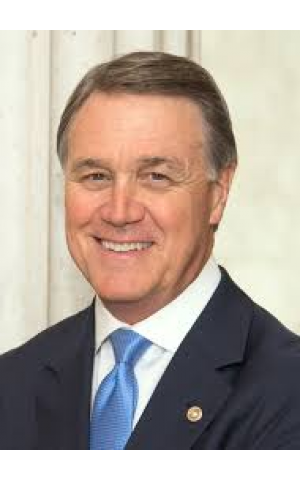
Republican Sen. David Perdue, who was elected to a six-year term in 2014, will face the winner of a Democratic primary field that includes Teresa Tomlinson, the former mayor of Columbus, Ga.; Ted Terry, the mayor of Clarkston, Ga.; Sarah Riggs Amico, who lost her bid to become lieutenant governor in 2018; and Jon Ossoff, who is Jewish and gained national attention during his unsuccessful 2017 run in Georgia’s 6th Congressional District.

As of June 30, Perdue’s campaign reported having $4.86 million cash on hand, according to the Federal Election Commission. By comparison, Tomlinson’s campaign reported $353,000. No FEC numbers were available for Terry, Amico, and Ossoff. The next deadline for filing campaign finance reports was Oct. 15. The Atlanta Journal-Constitution reported that Ossoff raised $800,000 in the three weeks after entering the race on Sept. 9, a figure added to $500,000 transferred from his 2017 campaign.
The unexpected race for Georgia’s other Senate seat began when 74-year-old Republican Johnny Isakson, who was not up for re-election until 2022, announced that he would retire at the end of 2019 because of health difficulties.
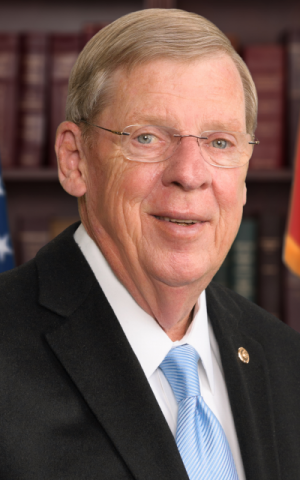
Republican Gov. Brian Kemp will appoint someone to warm that seat until a November 2020 special election to fill the remaining two years of Isakson’s term. Kemp is requiring that anyone interested fill out a job application. There are reports that hundreds of people have applied.
Among Republicans reported to have informed Kemp of their interest are U.S. Rep. Doug Collins, who represents Georgia’s 9th Congressional District; former U.S. Rep. Jack Kingston; former U.S. representative and federal Secretary of Health and Human Services Tom Price; Georgia House Speaker Pro Tempore Jan Jones; Public Service Commissioner Tim Echols; and Jackie Gingrich Cushman, an author and daughter of former Republican U.S. House Speaker Newt Gingrich.
Whoever Kemp picks – presumably a Republican – will have a leg up in a November 2020 “jungle primary,” so called because Republicans, Democrats, and anyone else who qualifies, are together on one ballot. If no candidate wins more than 50 percent of that vote, the top two vote-getters will advance to a runoff on Jan. 5, 2021 – two days after the Senate is to be sworn in. The new senator will serve a two-year term, and the seat will be contested again in 2022, when Isakson’s term was scheduled to end.
Not seeking either Senate seat is former Georgia House minority leader Stacey Abrams, who lost a heated and controversial election to Kemp in 2018.
The first Democrat to announce for the “jungle primary” was Matt Lieberman, son of Joe Lieberman. The elder is the former senator from Connecticut and Al Gore’s 2000 vice presidential running mate. The AJC reported Oct. 9 that, per Lieberman, his campaign had raised $250,000.

“I’m running as a fed-up citizen of Georgia and for the fed-up citizens of Georgia,” Lieberman, who is Jewish, told the AJC. “I feel like I have to get off my butt and do something. I feel this is a calling. The gap between what Georgians want and what Republicans reflect in Georgia is huge.”
The national interest in Georgia politics also extends to a pair of metro Atlanta U.S. House races.
The 6th District, which includes parts of Cobb, DeKalb and Fulton counties, was a Democratic stronghold before Gingrich won in 1978. After Gingrich, the 6th was Isakson’s stepping-stone to the Senate. Price held the seat until Trump tapped him to be HHS secretary, a post he resigned in a controversy over travel expenses.
Then came the “jungle primary” of 2017 and, at $55 million, the most expensive U.S. House race in history. Ossoff nearly won the seat outright in the first round, but lost to Republican Karen Handel in the run-off. Handel, in turn, lost in 2018 to Democrat Lucy McBath.
Handel wants the seat back. Other Republicans seeking that Republican nomination include state Sen. Brandon Beach, former Merchant Marine and Navy reservist Nicole Rodden, and businesswoman Marjorie Taylor Greene.
According to the FEC, as of June 30 McBath’s campaign reported cash on hand of nearly $929,000. Handel’s campaign reported $487,000, Green’s $478,000, Beach’s $312,000, and Rodden’s $153,000.
In the 7th District, which encompasses parts of Gwinnett and Forsyth counties, the decision by Republican Rob Woodall not to seek re-election set off an even larger scramble. Among the Democrats running is Georgia State University professor Carolyn Bourdeaux, who lost by 433 votes (out of some 280,000 cast) to Woodall in 2018.
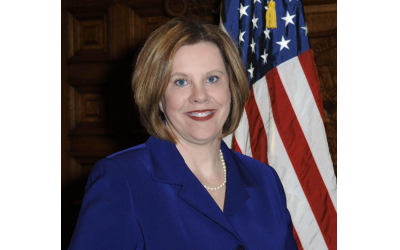
Also seeking the Democratic nomination are former Fulton County Chairman John Eaves, who is Jewish; political activist Nabilah Islam; Georgia state Sen. Zahra Karinshak; education entrepreneur David Kim; George state Rep. Brenda Lopez Romero; attorney Marqus Cole, and Rashid Malik, CEO of Apple Care Services, a home health care company.
Bourdeaux’s campaign reported cash on hand of $530,800 as of June 30, Islam’s reported $90,000, and Eaves’ nearly $59,800. No FEC numbers were available for the others.
The list of Republican hopefuls is even longer. Along with state Sen. Renee Unterman, who is Jewish, others include former Home Depot executive Lynne Homrich, emergency room physician Dr. Richard McCormick, businessman Ben Bullock, real estate investor Mark Gonsalves, educator Lerah Lee, Gwinnett County Republican secretary Jacqueline Tseng, former professional football player Joe Profit, and Duluth teacher Lisa Noel Babbage.
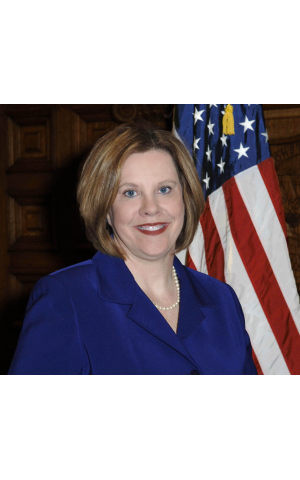
Unterman reported $674,000 cash on hand as of June 30, according to the FEC. Bullock’s campaign reported $141,000, Gonsalves’ $114,000, Lee’s $8,650, and Profit’s $5,700. No FEC numbers were available for the others.
Incumbent Democratic congressmen John Lewis, in the 5th District, and Hank Johnson, in the 4th District, have no announced primary or general election opposition.
Meanwhile, a federal judge has ordered Georgia to stop using touchscreen voting machines that leave no paper trail. Those devices, described by U.S. District Judge Amy Totenberg as “unsecure, unreliable and grossly outdated technology,” will be used one last time in the Nov. 5 municipal and county elections. Totenberg said that hand-marked paper ballots must be used if the state does not have a new system up and running by next year’s presidential primaries.
Georgia Secretary of State Brad Raffensperger announced in July that new touchscreen machines that print a paper ballot and record votes when scanned will be tested in a few cities in November 2019 and be in place statewide by March 2020.



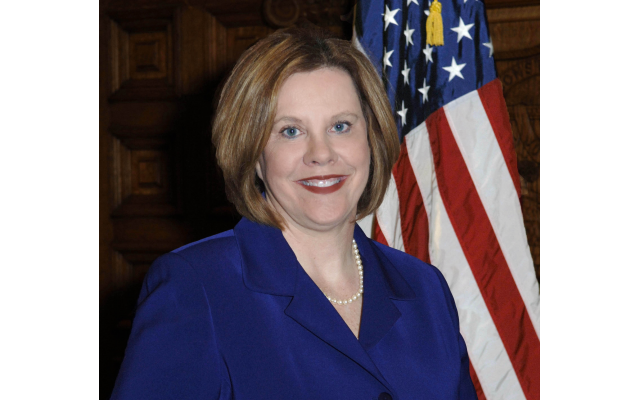



comments